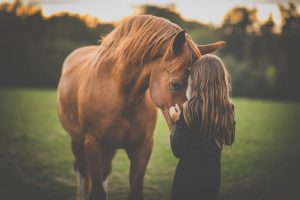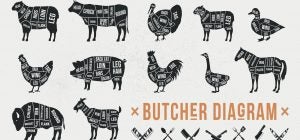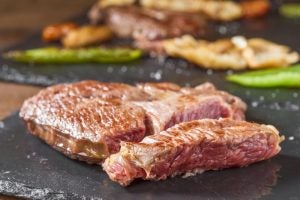I love horses, and I always have. But, when it comes down to what’s best for the horse, horse industry, the American economy, and just doing what makes sense — domestic horse slaughter is a no-nonsense, economical, humane, and viable option for unwanted horses.
While my horses eat their breakfast, lunch, and dinner before the people who live in my household, if it came down to whether my family ate or not, I’d eat the horses first. Not to mention, I’ve encountered a few horses over the years that, for whatever reason, be it poor genetics, training, or abuse, were going to be better off put out of their misery. So, why not allow them to be legally and humanely euthanized, processed in domestic facilities, and made useful for consumption by humans or other animals?

If you search for horse slaughter anywhere online, be prepared for a diatribe on the brutal, inhumane, unethical process. This will be followed by a barrage of misinformation on how horse meat is laced with unapproved substances harmful to human consumption. The reality, however, is that horse slaughter is legal, regulated, and even in the United States, was consumed by necessity and even enjoyed by some until very recently.
» Related: Horse meat in the United States: Decades of divisiveness
While Americans love their horses, let’s set aside the romanticism and look at horses for what they are: livestock. Britannica defines livestock as domesticated animals kept for meat, milk, and sometimes, farm or ranch work. Horses, in particular, are large, dangerous, expensive livestock.
Before being crucified by horse lovers or criticized by vegans, I’d encourage anyone reading this to check out information on animal byproducts. You still support a thriving livestock harvesting industry even if you’re not regularly consuming animal products. Why is the horse exempt if we use other livestock species for these purposes?

The domestic anti-slaughter movement is not just bad for the horse; it’s bad for society. Domestic horse slaughter provided an opportunity for a U.S. Department of Agriculture-regulated humane option for processing horse meat. In addition, U.S. horse processing facilities meant U.S. jobs and a place for U.S. horses to go. The three domestic horse slaughterhouses that closed in 2007 brought in millions of dollars annually. Experts such as Temple Grandin have offered their wisdom and expertise on creating the best facilities in the United States to ensure horse welfare during processing.
Without this option, horse owners have been left without a bottom dollar value on their animals. Domestic horse slaughter must be part of the equation to support a healthy, thriving equine economy.
But isn’t horse meat laced with chemicals and toxins bad for people? Let’s consider the reality of this statement. Responsible antibiotic and drug use should be a part of every horse owner and equine veterinarian’s regular practice. The USDA already establishes tolerances for veterinary drugs in every other species. These include safe withdrawal times for livestock producers to follow to market their products for consumption. Similar species-specific regulations will apply to horse producers if horses are processed in the United States for human consumption.

Not everyone can afford to keep their horses forever. Since 2020, alfalfa hay’s national cost has increased by 23 percent. Before this bump in price, Horse Illustrated listed the cost of horse ownership at $5,700 to $13,000 per year. A horse owner in the article lists her at-home costs at $4,800 per year because she owns her property and completes all of their daily care herself.
Euthanasia costs money — maybe even as much as $1,000 per horse when considering euthanasia drugs and disposal. Simply put, the average U.S. horse owner can’t afford to support an animal that isn’t useful.
Domestic slaughter provides a humane, economically viable option to dispose of unwanted, dangerous horses or even those that no longer serve their purposes. Following facility closures and U.S. recessions, the horse industry saw an influx of unwanted, neglected, and abandoned horses. While we have never felt the effects of a complete ban due to exports to slaughterhouses in Mexico and Canada (making for long and arduous trips for these animals), a domestic market for unwanted horses makes sense.

While some may say “yuck” to horse meat, the reality is that when times have been tough, Americans have eaten horses. Surprisingly, the horse was on the menu at the Harvard Faculty Club until 1985. With the rising costs of other animal proteins and food supply chain issues, could horse slaughter not be a viable option for exports and domestic markets? Even if you don’t love the idea of eating horse if you were hungry enough, you probably wouldn’t care — and, according to the people who regularly consume it, you might like it.
If you set emotions aside, domestic horse slaughter makes sense for the good of the horse and the good of the horse industry. Whether or not you’re interested in eating your horse, the need for a humane option in the United States is overwhelmingly assured. The legality of U.S. horse slaughter is no longer an issue, thanks to a lift on bans. Putting horses back on the plate provides an economic outlet for any horses that are unwanted or not useful, and one day, Americans may re-embrace horse meat on the dinner plate.
Heidi Crnkovic, is the Associate Editor for AGDAILY. She is a New Mexico native with deep-seated roots in the Southwest and a passion for all things agriculture.



